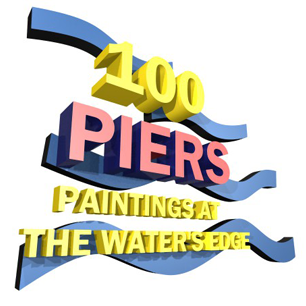ANNUAL DINNER of the PIER COMPANY’S EMPLOYES
On Thursday evening, the employees of the Pier Company, to the number of about 60, had their annual dinner, in the justices’ room of the Town Hall. There were, however, about 100 persons pre- sent altogether, many being connected with the pier, although not actually employed by the company. The room was tastefully decorated with evergreens, flags, and banners bidding those present ” A hearty welcome.” The chair was taken by that old and respected employee of the company, Mr. W. Harvey, and the vice-chair by Mr. John Sparkman. The dinner, arranged by a committee and cooked on the premises, was a very good one, and, as usual, done ample justice to. After the usual loyal toasts had been given from the chair, and warmly responded to.
The Chairman proposed ” The Army, Navy, and Reserve Forces,” and called upon several present to respond, but they all neglected to obey the call, except Sergeant Stears, of the 4th (Nunwell) corps, who responded for the Volunteers. He hoped those who represented the Army and Navy would not always be so backward. The Volunteers had been called the last line of defence. He hoped that it would be a long time before that last line was required, but when it was he was sure it would be ready. — Song, ” The Village Blacksmith,” Mr. Harmsworth.
Mr. W. C. Harvey proposed “The Ryde Pier Company.” When he looked around he saw a great many familiar faces who doubtless remembered the time when he (Mr. Harvey), a young lad of 13, went into the employ of the company, and continued in their service seven or eight years. Although they were years of hard work, they were happy ones, for hard work never hurt anyone — especially if they were well paid for it. Now, as one whose interests were bound up in the interests of the town, he felt that the prosperity of the Pier Company was bound up in that of the town. The two great Railway Companies would doubtless do a great deal of the work which had been done by the Pier Company in the past. All he could say was that the interests of the chairman and directors of the company were identical with the interests of the town. In attempting to put the link between the Isle of Wight Railway and the pier, they had suffered as a company. If, however, that led them to turn their attention and their capital to the local interest of the pier, and make it what it ought to be — a pleasure resort — they would find that their prosperity would return, and show itself in increased dividends for the shareholders. The toast was received with ” three times three,” and they are ” jolly good fellows.” — Song, ” Silver Moonlight,” Mr. F. Fowles.
Mr. McDonald briefly proposed “The Companies in connection.”
Mr. Cubley responded for the South- Western Railway; Mr. Jones for the Portsmouth and Ryde Steampacket Company; and Mr. Andrews for the Southampton Steampacket Company. — Song, “The Tichborne Case,” Mr. Chalmers.
Mr. Alfred A. Austin proposed “The Donors,” to whom those present were indebted for the pleasant evening they were enjoying, and for that kindness he was sure they would all return their most hearty thanks. — Drank with musical honours.— Song, Mr. C. Perkins.
Mr. John Langdon said he had to propose a toast in which he was sure all present would join. There was no one who looked after the servants of the company better than their secretary. He had been one of the servants, and had started with the company when he was quite a boy, and had known Mr. Ratcliffe ever since he had come into the secretary- ship. If there was any little hardship, the secretary was always ready to make the best of it for them (applause). As Mr. Ratcliffe was not present he coupled with the toast the name of Mr. Weeks — Drank with three times three, and “He’s a jolly good fellow.”— Song, “The flowing bowl,” the Chairman.
Mr. Weeks thoroughly endorsed what Mr. Langdon had said respecting the worthy secretary, and briefly thanked them on his behalf. — Song, ” The three jolly smiths,” Mr. P. Shotter.
Mr. J. Loader proposed “The health of Mr. J. Bourne,” manager of the Isle of Wight Railways, which was likewise enthusiastically received.
Mr. Morriss proposed ” The Chairman and Vice- Chairman,” who both appropriately responded. — Song, “John Barleycorn,” Mr. E. Potts.
Mr. W. Woodrow proposed “The Visitors,” to which Mr. J. Butler responded. — Song, ” The good Rhine Wine,” Mr. Morriss.
Mr. F. Shotter proposed “The health of Mr. A. A. Austin,” to whose exertions they were much indebted for carrying out the arrangements for that dinner. — Drank with all the honours, and briefly responded to. — Song, “The Pride of Petticoat-lane,” Mr. Judd.
Mr. A. A. Austin proposed ” The health of their esteemed fellow-servant, Mr. Samuel Biggs.” — ” He’s a jolly good fellow.”
Mr. Biggs briefly responded, and proposed ” The health of Mr. W. Austin.” — Song, Mr. Curley.
” The Ladies” was proposed by Mr. Hamsworth, and responded to by Mr. Ellman.
“The Press” was proposed by Mr. F. Shotter. — A number of other toasts were given and responded to, and a very pleasant evening was spent.

